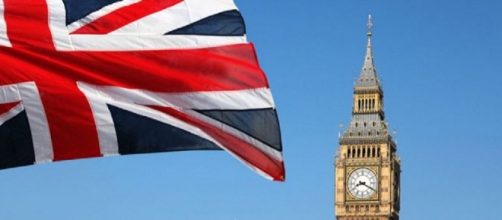THERESA MAY has faced a two-pronged assault over Brexit, one from Labour and Jeremy Corbyn, the other is from her own hard-right backbenchers. David Davis was full of optimism when he declared that Brexit will not lead to a ‘Mad Max’ style dystopia and Corbyn did take note and pressed May over Brexit during PMQs. Furthermore, a paper from Whitehall that has been shared with member states of the EU shows part of what the government are seeking from Brexit.
Whilst there has been fierce debate over Labour’s position, the government have largely kept their plans under wraps despite constant pressure from campaigners and MPs from all parties.
Which perhaps is more concerning but nonetheless, there is a little more clarity.
Brexit means…?
First of all, a group of 62 hard-line Brexiteers have signed a letter to the PM urging her to force a Clean Break from the EU, advocating taking on WTO rules and potentially opening up British public services such as the NHS to US health firms. The letter contains names such as colonial throwback, Jacob Rees-Mogg, serial filibusterer, Phillip Davies along with former cabinet ministers Priti Patel and Ian Duncan-Smith. This underlines the significant split on the Conservative Party over Brexit because in a paper shown to all EU member states shows that Whitehall are seeking an open-ended transition period after Brexit.
In the paper shared with all member states, it says “The UK believes the period’s duration should be determined simply by how long it will take to prepare and implement the new processes and new systems that will underpin the future relationship. The UK agrees this points to a period of around two years but wishes to discuss with the EU the assessment that supports its proposed end date.” This is likely to deepen the divide further especially if you consider the letter sent by the hard-liners stated they were against anything that tied the UK to the EU.
Customs union and UK farming
Furthermore, Jeremy Corbyn has outlined that the UK would have to have a customs union with the EU, so that a hard border in Ireland is definitely avoided, he said in questions after a speech to manufacturers’ body the EEF on Tuesday that Northern Ireland was key to this decision.
But also stated that the continuation of trade as a whole was important. He said that membership of a customs union was an end point post-Brexit, but it is not the only option on the table. This signals an important shift in policy and a definitive answer on Labour policy.
Ironically, it is Michael Gove who could become an awkward opposition to certain aspects of Brexit as he has come out in support a new seasonal agricultural workers scheme beyond Brexit. Gove has stated that there is “compelling evidence” for a new SAWS and that British farmers will need access to workers globally. He has suggested that he would support a special arrangement for the tens of thousands of farmers who keep farming productive and profitable.
Although, he was unable to make a formal announcement, this support would no doubt be putting pressure on the Home Office and May, who is coming under increasing scrutiny from the hard-line backbenchers, particularly over immigration.
Meanwhile anti-Brexit campaigners will launch a campaign blitz to promote the benefits of remaining closely aligned with the EU. The Best for Britain group have declared around £1.2 million in funding and are planning some billboards but significant spending on digital advertising. This would be a move that was effective for the Leave campaign during the referendum. The decision to begin a blitz now is due to the upcoming parliamentary votes on whether the UK should remain as part of the customs union.

